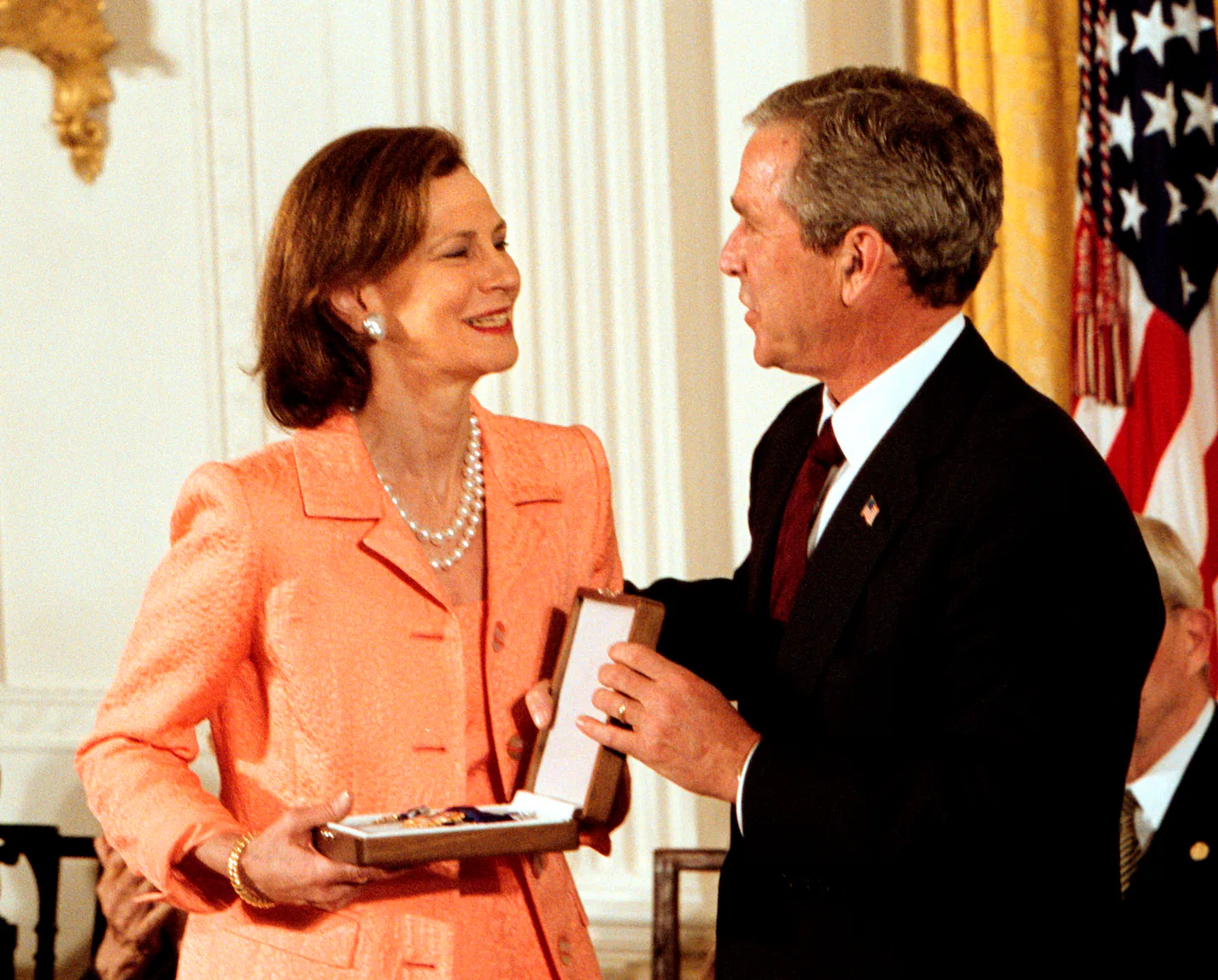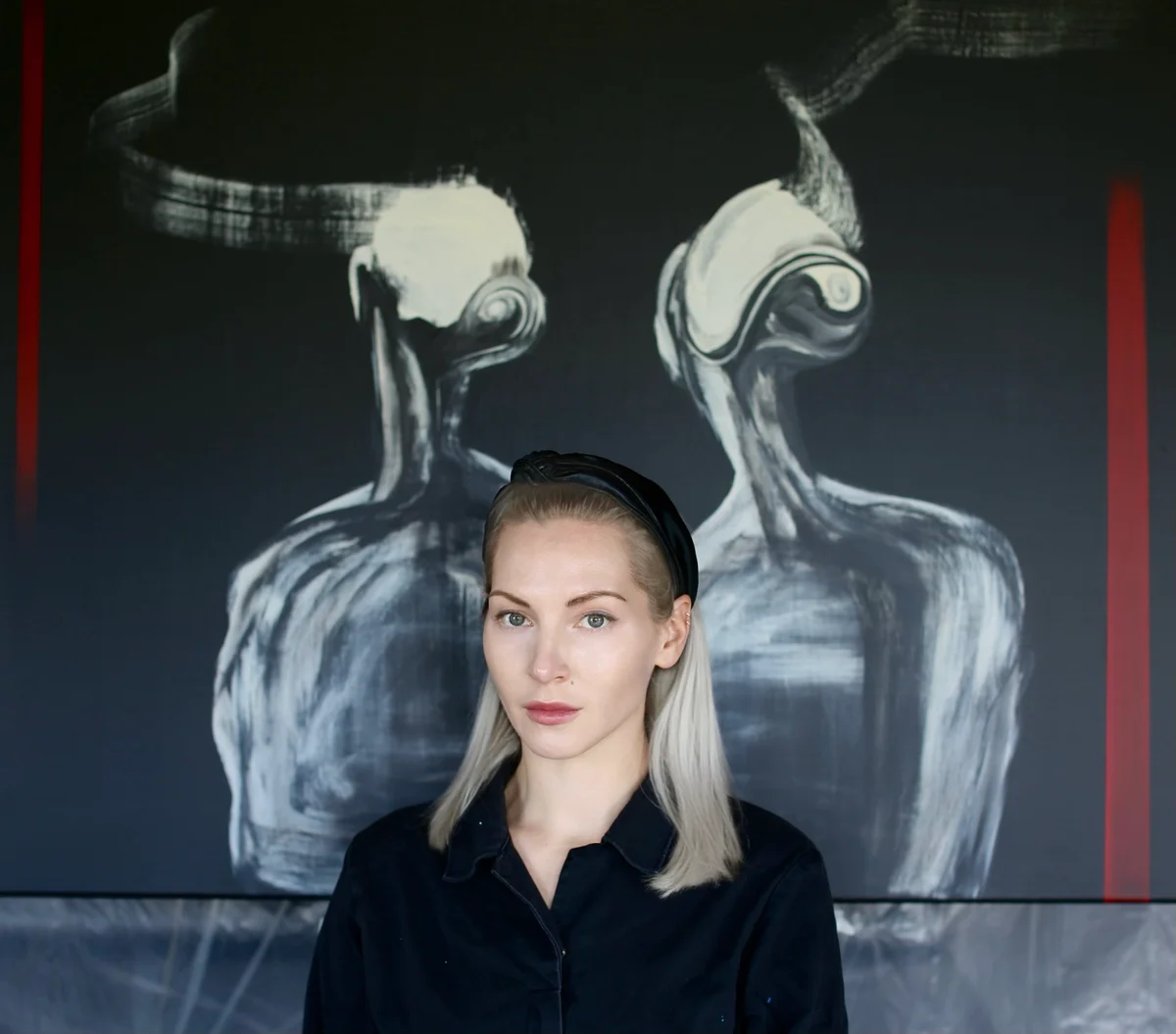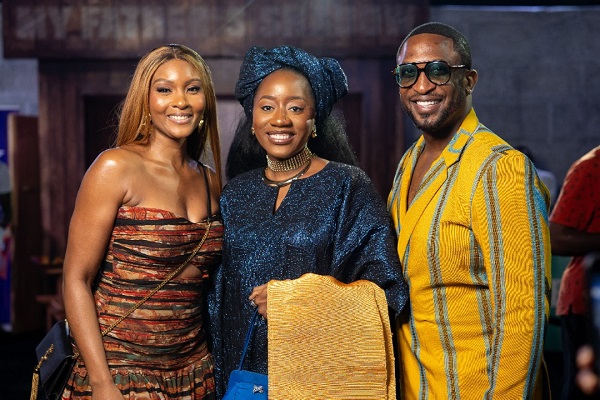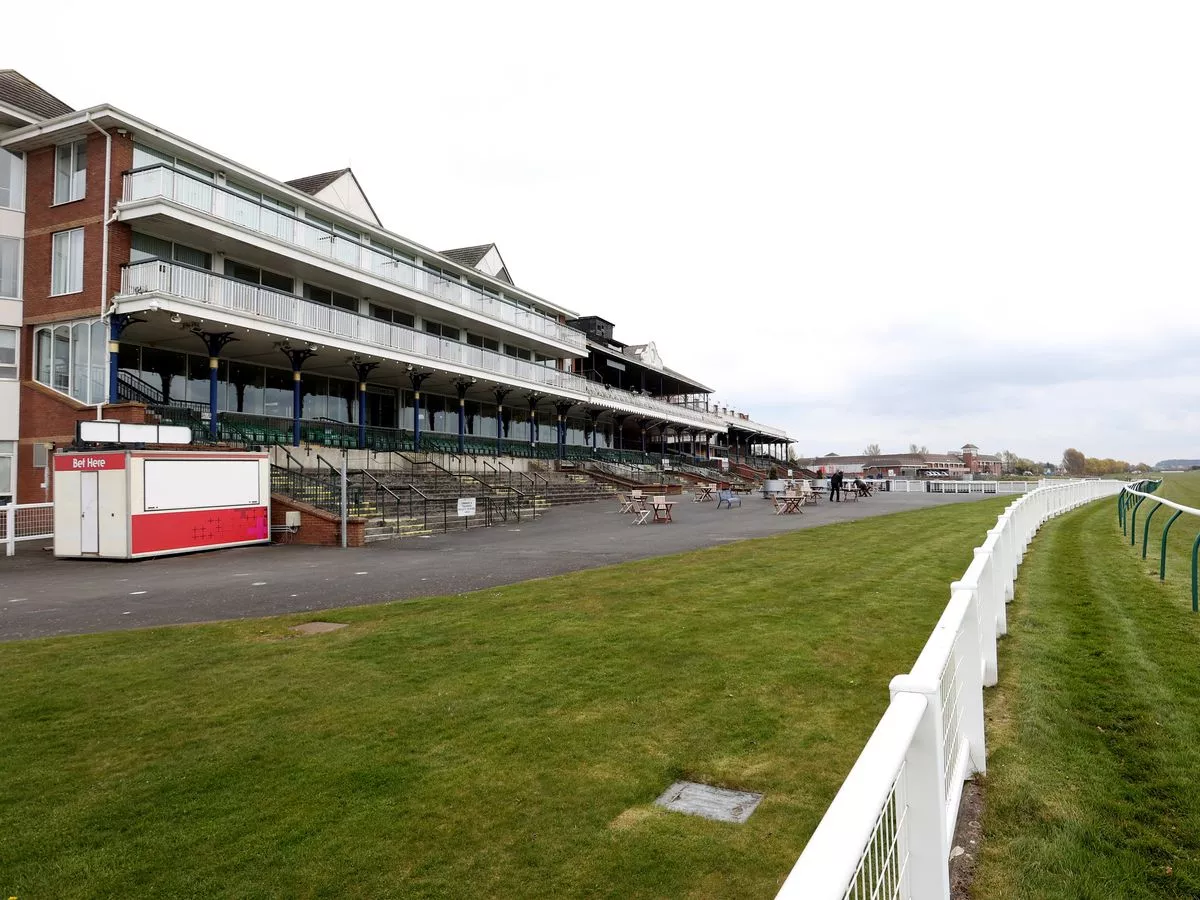
As the granddaughter, daughter, sister and mother of five Washington Post publishers, Ms. Weymouth moved in social circles that helped shape American media and government, from the Camelot age of John F. Kennedy to the dawn of the Trump era more than 50 years later.
As a young girl, she attempted to teach her mother, Katharine Graham, the twist in preparation for dance parties at the White House. She later swapped stories about her father, Philip L. Graham, with former president Lyndon B. Johnson, a family friend. To celebrate her mother’s 70th birthday, she organized a glittering 600-person party that drew President Ronald Reagan as well as fashion designer Oscar de la Renta. Henry A. Kissinger helped her craft the guest list.
Donald E. Graham, her younger brother, was tapped to succeed their mother as publisher of The Post in 1979. Ms. Weymouth pursued a career outside the paper, at least initially.
“Mom decided on one child – Don,” she told Washingtonian magazine in 2011, when asked if she was disappointed not to be chosen as Katharine Graham’s successor. “I didn’t want to go to The Post. I wanted to make it on my own.”
While based out of New York City, Ms. Weymouth freelanced for Esquire, New York magazine and the Sunday magazine of the New York Times, writing profiles of Henry Ford II, Fiat executive Gianni Agnelli and philanthropist Dorothy Buffum Chandler, whose son, Otis, ran the Los Angeles Times.
By the early 1980s, Ms. Weymouth had turned to foreign affairs, filing opinion pieces with a focus on the Middle East. Writing for the Los Angeles Times, she explored the motivations behind Israel’s 1985 bombing of the Palestine Liberation Organization headquarters in Tunisia and looked favorably on the prospects of the contras, the right-wing militants battling Nicaragua’s Marxist government.
Yet her focus was less on making an ideological argument than on offering exclusive access to world leaders. Leveraging her connections in media and politics, she interviewed PLO Chairman Yasser Arafat for Parade magazine in 1982, during Israel’s siege of Beirut. Three years later, she spoke with West German Chancellor Helmut Kohl for the L.A. Times, becoming the first American journalist to do so after a controversial visit in which Kohl took Reagan to a military cemetery containing the graves of Nazi SS soldiers.
“These young people haven’t done anything,” Kohl said of the fallen troops, many of whom were drafted. “They just served and were killed in action.”
Ms. Weymouth joined The Post in 1986, rising to become a senior associate editor while publishing her interviews in Outlook, the paper’s commentary and analysis section. She also wrote for Newsweek, another Graham family holding, where she held the title of special diplomatic correspondent until 2010, when the publication was put up for sale.
Over the decades, she interviewed democratically elected officials – including every Israeli prime minister from Menachem Begin to Benjamin Netanyahu – as well as despots and strongmen. She spoke with Saddam Hussein “in his heavily guarded office with his trusted interpreter at his side and a pistol at his hip,” as she put it in a 1984 L.A. Times story, and interviewed Moammar Gaddafi inside a tent at his compound in Libya.
Another subject, Alexander Lukashenko, told her he took issue with his nickname, “Europe’s last dictator”: “Belarus and Lukashenko,” he said in a Post interview, “do not have the resources to be a dictator.”
Ms. Weymouth interviewed Ukrainian President Volodymyr Zelensky in 2022, one month before Russia invaded Ukraine, and spoke with former Pakistani prime minister Benazir Bhutto in 2007, in what Ms. Weymouth described as “the last interview” before Bhutto’s assassination.
“She walked me out of her house and said, ‘The security services say there’s a threat of an attack against me in 10 days,’” Ms. Weymouth recalled in a Newsweek interview. “She was killed two weeks later.”
Ms. Weymouth could be single-minded in pursuit of a story, irritating some journalists who found her imperious and accused her of “bigfooting” foreign correspondents, using her privileged status to win exclusives. Detractors said her preferred interview format, the Q&A, was an inadequate vehicle for in-depth journalism: Profiling Ms. Weymouth in 1990, Spy magazine wrote that her columns “read at times like open forums for the Third World tough guys she interviews.”
Yet Ms. Weymouth also showed a willingness to spar with her subjects. During a rare 1998 interview with Slobodan Milosevic, she pressed the Serbian strongman on allegations of genocide, ethnic cleansing and media censorship.
“Why are you shutting down newspapers?” she asked.
“They are completely free.”
“Journalists are not free if they get fined every time they say something.”
“That is the law of Serbia.”
“I understand you used to allow more freedom.”
“The press is completely free.”
“No, that’s not true.”
“The press is completely free,” Milosevic insisted, “but if you publish lies … you must pay a penalty.”
Fred Hiatt, The Post’s longtime editorial page editor, once observed that Ms. Weymouth’s columns offered a chance “to read leaders’ words elicited by smart questions but unfiltered by pundits.”
“Lally could be demanding and difficult, but she had the passionate instincts of a good journalist,” said foreign affairs columnist David Ignatius, who edited her stories while leading Outlook in the late 1980s. “She loved to find people who had something important to say and interview them, and she loved to make news. In the time I was her editor, she had scoops about the war in Afghanistan, the machinations of the Middle East and a dozen other subjects.”
Outside of journalism, Ms. Weymouth was known for hosting star-studded parties, including an annual lunch for attendees of the World Economic Forum in Davos, Switzerland. Each summer, she organized a Fourth of July bash that doubled as her July 3 birthday celebration. Held at her Southampton home on Long Island, it was such a staple of the Hamptons social scene that its cancellation in 2020, at the height of the coronavirus pandemic, prompted a story in the New York Post.
Ms. Weymouth “throws the Hamptons event that unites hundreds of politicians, financiers and socialites over fried chicken, cornbread, champagne and American flag cookies,” the paper reported, noting that two years earlier, “first daughter Ivanka Trump danced among guests including Democratic Sen. Chuck Schumer, former New York City Police Commissioner Ray Kelly and filmmaker Steven Spielberg.”
For years, Ms. Weymouth also hosted a Newsweek-Washington Post reception that celebrated the White House Correspondents’ Association dinner, where she appeared with friends and acquaintances from New York. Her special guest at the 2011 dinner was Donald Trump, who was then in the news for promoting “birther” conspiracy theories about President Barack Obama.
In his speech at the dinner, Obama ridiculed Trump, hammering away at the “Celebrity Apprentice” host, who was sitting next to Ms. Weymouth. It was a transformative moment, according to Roger Stone, Trump’s long-serving political adviser.
“I think that is the night that he resolves to run for president,” Stone said in a 2016 PBS “Frontline” documentary. “I think that he is kind of motivated by it: ‘Maybe I’ll just run. Maybe I’ll show them all.’”
Elizabeth Morris Graham was born in Baltimore on July 3, 1943, the first of four siblings and her parents’ only daughter. Lally, as she was nicknamed, grew up in Washington and at her family’s Northern Virginia farm, Glen Welby.
Looking back on her early childhood, Ms. Weymouth described her mother as “a little Georgetown housewife who walked the dog with her daughter and shopped at Safeway.” Her father was “the person I cared for most in the world,” a witty newspaperman and former military intelligence officer who encouraged her interest in world affairs.
The family had owned The Post since 1933, when Ms. Weymouth’s maternal grandfather, Eugene Meyer, bought the newspaper at a bankruptcy auction. Ms. Weymouth’s father succeeded him as publisher in 1946.
Ms. Weymouth graduated from the private Madeira School in McLean, Virginia, and studied American history and literature at Radcliffe College, now part of Harvard University.
By the time she enrolled, her father was increasingly struggling with bipolar disorder, then known as manic depression. He could be warm and vibrant – “the fizz in our lives,” as Katharine Graham put it in her Pulitzer Prize-winning memoir, “Personal History.” He could also undergo violent mood swings, drinking and acting erratically.
In 1962, Ms. Weymouth’s mother discovered that he was having an affair with a Newsweek staffer, whom he told friends he planned to marry. The Grahams’ marriage fractured, but Ms. Weymouth remained close to both parents, serving as “a pillar of strength and stability,” as her mother put it. Her father was eventually checked in to a psychiatric hospital. During a visit to Glen Welby, he died by suicide in 1963.
Ms. Weymouth was 20 at the time, a junior in college. The night before her father’s funeral, she accompanied her mother to a Washington Post board meeting where Katharine Graham – who succeeded her husband as publisher – announced that the paper would stay in the family.
In her memoir, Graham recalled that Ms. Weymouth was wearing just a nightgown and robe when she hopped in the car to drive with her to the event. Ms. Weymouth provided her with handwritten notes that Graham said she “relied on” in making her address to the board.
“It touches me still,” Graham wrote, “that this young girl, who was, if anything, more devastated than I, could scribble out this simple but correct sequence of thoughts and jump in the car in her nightclothes to put them in my hand.”
In 1964, Ms. Weymouth married Yann Weymouth, an architect who later designed the Salvador Dalí Museum in Florida and worked with I.M. Pei on the remodeling of the Louvre. (Yann’s sister Tina Weymouth became the bassist in the band Talking Heads.)
Ms. Weymouth and her husband had two daughters, Katharine and Pamela Alma Weymouth, and soon divorced. She never remarried but over the years was romantically linked to left-wing journalist Alexander Cockburn and, on the other end of the political spectrum, conservative commentator Eric Breindel.
At the invitation of her friend George Weidenfeld, a British publisher, Ms. Weymouth edited a 1973 book of essays, “Thomas Jefferson: The Man, His World, His Influence.” Three years later, during the country’s bicentennial year, she looked back on American life a century earlier, writing the text to “America in 1876: The Way We Were,” an illustrated compendium assembled by graphic designer Milton Glaser.
The book included a lengthy chapter on “The Great Fortunes and the Rise of High Society,” reflecting Ms. Weymouth’s abiding interest in what she called “the rich of America” – a group that included captains of industry who frequented her Upper East Side home, mingling with New York writers and artists.
At one 1977 party in her apartment, Ms. Weymouth watched in horror as Norman Mailer, feuding with Gore Vidal, threw a drink in Vidal’s face and punched his rival in the mouth. The two men traded blows in the living room as Ms. Weymouth begged for someone to intervene.
“Shut up,” she recalled New York magazine co-founder Clay Felker saying. “This fight is making your party.”
At times, Ms. Weymouth traveled to Washington to help her mother at The Post. During a months-long pressmen’s strike in 1975, she headed to the mail room one night with her 9-year-old daughter Katharine, who “stood on a box,” as Graham later remembered it, while “helping to wrap papers.”
Before joining The Post, Ms. Weymouth was in talks with ex-Newsweek correspondent Arnaud de Borchgrave, editor of the newly founded Washington Times, to join his paper instead. The New York Times reported that their conversations helped pave the way for Ms. Weymouth’s hiring at The Post, where her mother – by then the chairman of the board – had reportedly tried to avoid accusations of nepotism by limiting the number of family members who worked at the company.
Katharine Graham died in 2001. Her namesake, Ms. Weymouth’s daughter Katharine Weymouth, later served as publisher for six years before stepping down in 2014, after seeing the newspaper through its sale to Jeff Bezos.
Survivors include Ms. Weymouth’s two daughters and her brothers Don and Stephen Graham, an English professor at Bard College; and five grandchildren. Her brother William W. Graham, a lawyer and philanthropist, died by suicide in 2017.
Late in life, Ms. Weymouth conducted four or five interviews a year, most recently traveling to Doha to sit down with Qatari Prime Minister Mohammed bin Abdulrahman Al Thani for a piece that ran in May, on the eve of Trump’s official visit to the country.
Ms. Weymouth had little interest in being interviewed herself, once writing that she was “uncomfortable with personal revelations.” Still, in 1976 she agreed to sit down with People magazine after publishing her second book.
Asked if there were any drawbacks to growing up rich, she replied: “Yes. But either you decide you have a problem, or you view your family as a terrific advantage and say, ‘Let’s go forward.’”



